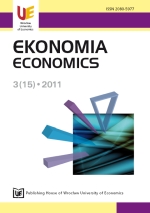INTERDEPENDENCE OF COMPETITION THEORIES AND REGULATION OF COMPETITION. HISTORICAL CONTEXT AND ITS IMPLICATIONS FOR THE INSTITUTIONAL CHANGE ILLUSTRATE
INTERDEPENDENCE OF COMPETITION THEORIES AND REGULATION OF COMPETITION. HISTORICAL CONTEXT AND ITS IMPLICATIONS FOR THE INSTITUTIONAL CHANGE ILLUSTRATE
Author(s): Mikołaj KlimczakSubject(s): Economy
Published by: Wydawnictwo Uniwersytetu Ekonomicznego we Wrocławiu
Keywords: ANTITRUST LAW; COMPETITION; ECONOMIC COMPETITION THEORIES; SHERMAN ACT; RELEVANT MARKET
Summary/Abstract: The following paper examines the connections between economic competition theories and the practice of antitrust law. The main objective of this paper is to analyse the historical sequence of the theoretical findings of economists and rulings of judges and jurors in antitrust cases. The main hypothesis is that the theory of economics neglects the current needs of antitrust authorities and usually analyses implemented mechanisms ex post. This hypothesis is substantiated with two examples: Sherman Act introduction and justification and relevant market analyses conducted in many antitrust cases.
Journal: Ekonomia
- Issue Year: 2011
- Issue No: 15
- Page Range: 104-112
- Page Count: 9
- Language: English

